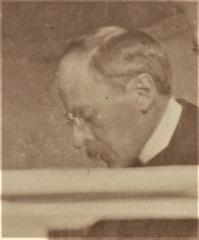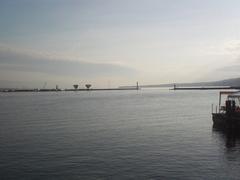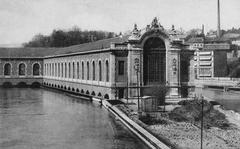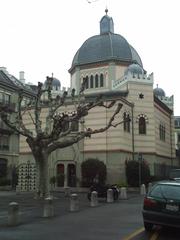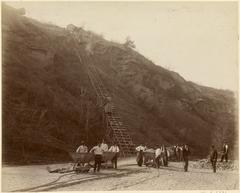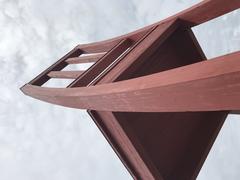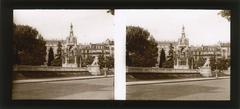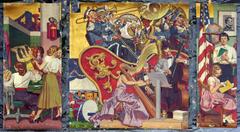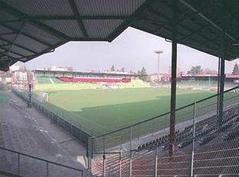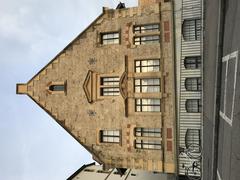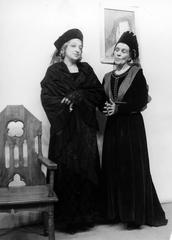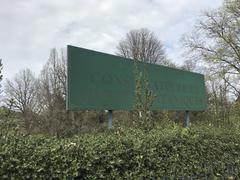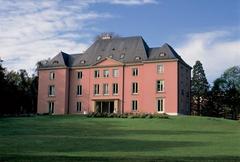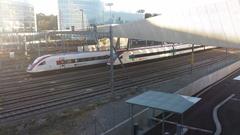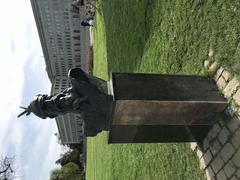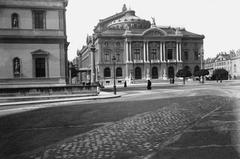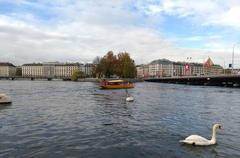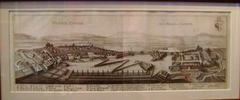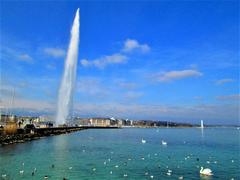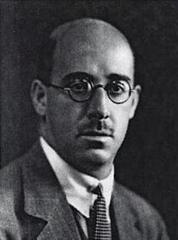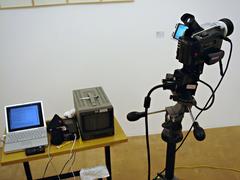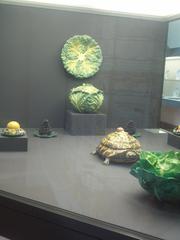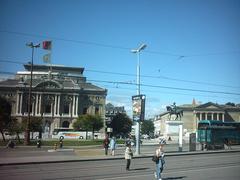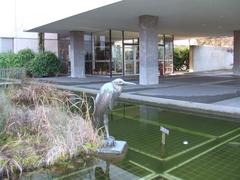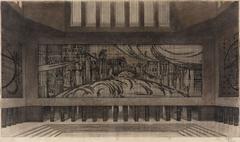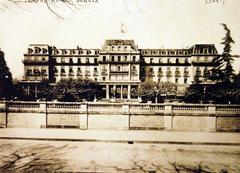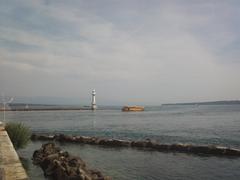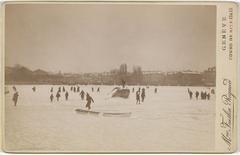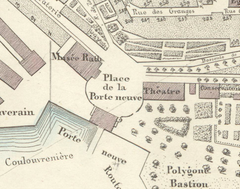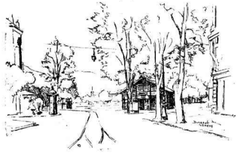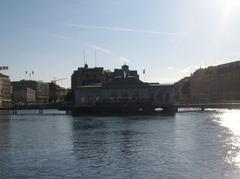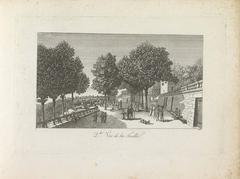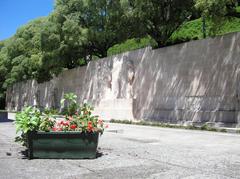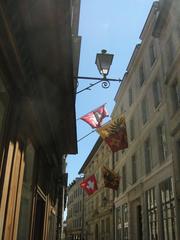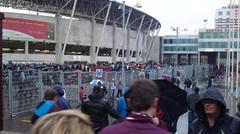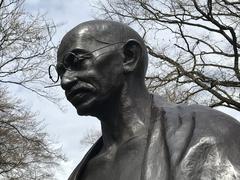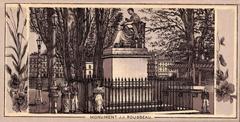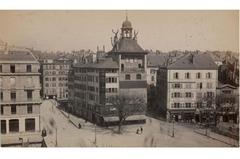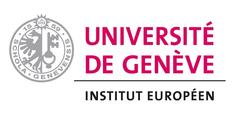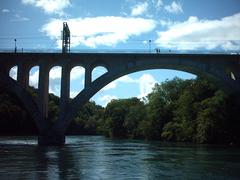Guide to Visiting Musée d’histoire des sciences de la Ville de Genève, Geneva, Switzerland
Date: 19/07/2024
Introduction
The Musée d’histoire des sciences de la Ville de Genève, nestled in Geneva, Switzerland, is an essential destination for anyone with an interest in the history of science. Established in 1964 and housed in the neoclassical Villa Bartholoni, the museum offers an extensive collection of historical scientific instruments and engaging exhibits that showcase the rich scientific heritage of Geneva (source). This guide aims to provide comprehensive information for prospective visitors, including the museum’s history, visiting hours, ticket prices, and key highlights. Whether you’re a history enthusiast, a science aficionado, or a curious traveler, this museum promises a captivating and educational experience.
Table of Contents
- Introduction
- Discover the Musée d’histoire des sciences de la Ville de Genève
- Visitor Information
- Unique Features and Special Events
- FAQ
- Significance in the Scientific Community
- Visitor Experience and Educational Impact
- Conclusion
Discover the Musée d’histoire des sciences de la Ville de Genève
History of Musée d’histoire des sciences de la Ville de Genève
Origins and Establishment
The Musée d’histoire des sciences de la Ville de Genève was established in 1964 and is housed in the Villa Bartholoni, a neoclassical building constructed between 1829 and 1830. The villa, originally built for the Bartholoni family, reflects the neoclassical trends of the early 19th century, characterized by its symmetrical design and classical proportions.
Early Collections and Exhibits
The museum’s initial collection was largely derived from the personal collections of prominent Geneva scientists and institutions. Key contributors included Marc-Auguste Pictet, a renowned physicist and meteorologist. The museum also acquired items from the University of Geneva and the Geneva Observatory, enriching its repository with astronomical instruments, microscopes, and other scientific tools.
Expansion and Development
Over the decades, the museum expanded its collection through donations, acquisitions, and loans from other institutions. In the 1970s and 1980s, the museum introduced interactive displays and educational programs, highlighting the contributions of Geneva scientists to various fields such as astronomy, physics, and biology.
Renovations and Modernization
In the early 2000s, the museum underwent significant renovations to modernize its facilities and improve the visitor experience. Completed in 2006, the project included the installation of state-of-the-art exhibition spaces, climate control systems, and a dedicated educational area for workshops and lectures.
Notable Exhibitions and Milestones
One notable exhibition was “Geneva and the Stars,” which showcased the city’s rich history in astronomy. This exhibition featured rare astronomical instruments and highlighted the work of prominent Geneva astronomers such as Jean-Dominique Cassini and Horace-Bénédict de Saussure. In 2014, the museum celebrated its 50th anniversary with a special exhibition titled “Science and Society,” which included interactive displays and multimedia presentations.
Recent Developments
In recent years, the museum has embraced digital technologies to enhance its exhibits and reach a global audience. Virtual tours and online exhibitions have allowed the museum to engage with visitors worldwide, particularly during the COVID-19 pandemic. The museum has also expanded its educational programs, offering workshops, lectures, and hands-on activities for students and educators.
Visitor Information
Visiting Hours and Tickets
- Visiting Hours: The museum is open from Tuesday to Sunday, 10:00 AM to 5:00 PM. It is closed on Mondays and public holidays.
- Tickets: Admission is free for all visitors. Special exhibitions may have a separate entry fee, so it is advisable to check the official website for the latest information.
Travel Tips
- Location: The museum is located at Villa Bartholoni, Rue de Lausanne 128, 1202 Geneva, Switzerland.
- Public Transport: Easily accessible via public transport. You can take tram lines 15 and 17 or bus lines 1 and 25 to the nearby stop, Jardin Botanique.
- Parking: There are parking facilities available near the museum.
Nearby Attractions
- Botanical Gardens: Located adjacent to the museum, a beautiful place to explore before or after your museum visit.
- Parc de Mon Repos: A picturesque park perfect for a leisurely stroll.
- Geneva Observatory: Another scientific site of interest, showcasing the city’s astronomical history.
Unique Features and Special Events
Guided Tours
The museum offers guided tours that provide in-depth insights into the exhibits and their historical context. Tours can be booked in advance through the museum’s website.
Photographic Spots
The neoclassical architecture of Villa Bartholoni and the scenic surroundings of the Botanical Gardens make for excellent photographic opportunities.
Special Events
The museum hosts special events and temporary exhibitions throughout the year. Check the museum’s website for the latest updates and event schedules.
FAQ
- Is the museum accessible for visitors with disabilities? Yes, the museum is wheelchair accessible and provides facilities for visitors with disabilities.
- Are there any dining options nearby? Yes, there are several cafes and restaurants within walking distance of the museum.
- Can I take photographs inside the museum? Photography is allowed in most areas of the museum, but flash photography and tripods are not permitted.
- Are pets allowed inside the museum? No, pets are not allowed inside the museum, with the exception of service animals.
Significance in the Scientific Community
The Musée d’histoire des sciences de la Ville de Genève holds a unique position in the scientific community, serving as a repository of historical scientific instruments and a center for the study of the history of science. The museum’s collection provides valuable insights into the development of scientific thought and technology, particularly in the context of Geneva’s contributions to various scientific fields.
Visitor Experience and Educational Impact
Visitors to the museum can expect an immersive and educational experience. The exhibits are designed to be both informative and engaging, with interactive displays and multimedia presentations that bring the history of science to life. The museum’s educational programs offer a range of activities for students and educators, aiming to inspire curiosity and a passion for science.
Conclusion
The Musée d’histoire des sciences de la Ville de Genève is a testament to the rich scientific heritage of Geneva and its contributions to the global scientific community. Through its extensive collection of historical scientific instruments, interactive exhibits, and educational programs, the museum offers visitors a unique opportunity to explore the history of science and its impact on society. As the museum continues to evolve and embrace new technologies, it remains a vital institution for preserving and promoting the history of science for future generations.
Visit and Stay Up to Date
Plan your visit to the Musée d’histoire des sciences de la Ville de Genève and experience the captivating world of scientific history. Download the mobile app Audiala for an enhanced visitor experience, and follow the museum on social media for the latest updates, events, and exhibitions (Audiala) (source).
References
- Exploring the Musée d’histoire des sciences de la Ville de Genève - History, Visiting Hours, and Tickets, 2024, Author (source)
- Visiting the Musée d’histoire des sciences de la Ville de Genève - Hours, Tickets, and Must-See Exhibits, 2024, Author (source)
- Discover the Treasures and History at Musée d’histoire des sciences de la Ville de Genève - Exhibits, Tickets, and More, 2024, Author (source)

